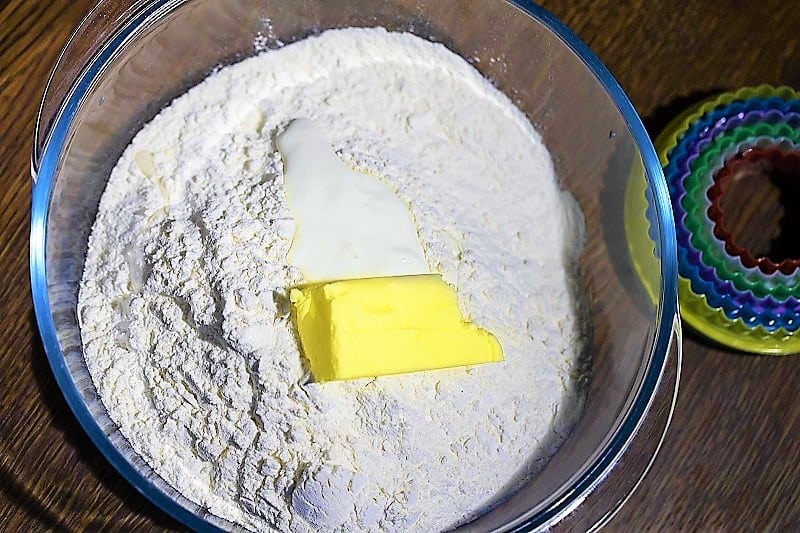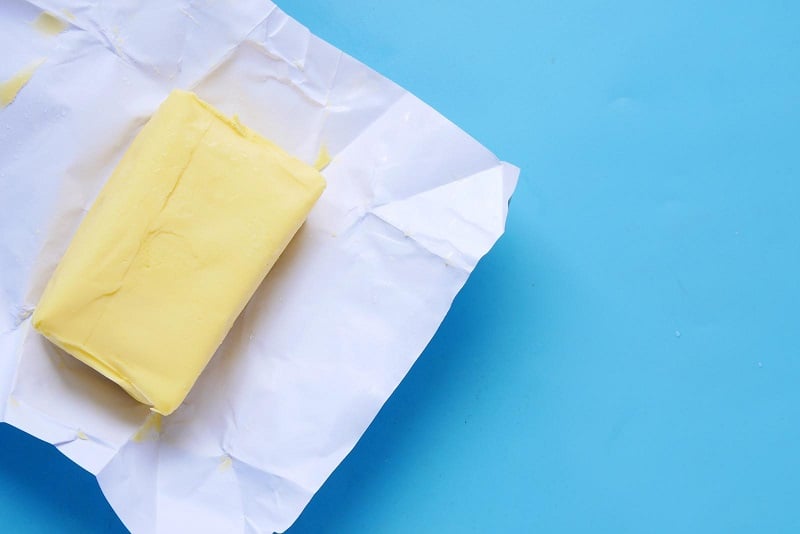Butter is one of those core ingredients that most people use so quickly that it never has the chance to expire.
Whether you spread it on your toast or use it in your baking, butter is a very versatile ingredient that’s usually in demand.
But if you’ve bought butter in large quantities or you don’t bake as often as you had planned, you might find yourself with some blocks of butter which have gone past their expire date.
What should you do with out-of-date butter, is it safe to eat?
You’ll find the answers you need below.
How Long Can You Use Butter After the Expiration Date?
To get the maximum amount of use from a block of butter it’s important to store it correctly. This means putting it in the fridge or other cold space where the temperature is constantly 40°F/4°C or below.
These low temperatures are essential as if the butter is kept at room temperature for too long, the oils in the recipe start to become rancid.
Salted butter has a slightly higher tolerance level than unsalted butter and can be left in warmer temperatures for a few days longer without spoiling.
Despite this, the guidelines for storing salted and unsalted butter are the same.
You should be able to eat butter 3-4 months after its expiry date if it has been left unopened. For butter which has been opened, it can be used for approximately a month past its expiry date.
Of course, check for signs that the butter has gone off first before using it. This could be an unpleasant smell or discolouration.
The high fat content in butter means that its natural shelf life is pretty long and it can usually be used after the expiry date.
Spray butter has a slightly different composition to block butter and can be used for 12 months past its expiry date.

Can You Bake with Expired Butter?
Cooking with expired butter is no different than eating straight from the packet. The high temperatures won’t provide any protection if the butter has spoiled.
The strong and unpleasant flavours of rancid butter means that it’s not practical to cook with it. The resulting food would be inedible and dominated by the taste of spoiled butter.
If the butter is simply past its expiry date and not rancid or mouldy, then you can cook with it as you would do normally.
How Can You Tell if Butter is Off?
Like other dairy products, butter is perishable, but its combination of high fat and low lactose means that it won’t spoil as quickly as other types of milk-based food.
When butter has gone off, the signs are easy to detect. The colour may be significantly different, either lighter or darker, with patches of discolouration.
It will also smell unpleasant; you won’t want to eat butter that has gone off. If you did accidentally take a mouthful of butter which has gone bad, you’ll notice a strong, sour taste.
Butter can also develop mould as well as becoming rancid. When this happens, black spots will develop on the butter. You should not simply cut these parts out and continue to eat the rest.
It’s worth mentioning that butter can go off even if it hasn’t gone past its expiry date if you haven’t stored it correctly. Without refrigeration and kept in a warm room, butter can quickly go rancid or develop mould.
What Happens If You Eat Out of Date Butter?
It’s very unlikely that you will eat butter that has gone rancid without noticing, because of the difference in taste.
If the butter still tasted fine and there were no signs of mould, then it was probably still OK to eat, no matter how old it was.
Even if you eat butter which has gone rancid, you won’t get food poisoning or become unwell. The worst that will happen is that you will have a mouthful of unpleasant-tasting food!

Chef’s Pick is your guide to the best kitchen equipment and appliances in the UK.
We help you understand the confusing world of cookers, ovens and cookware so you can get the most out of your kitchen.

